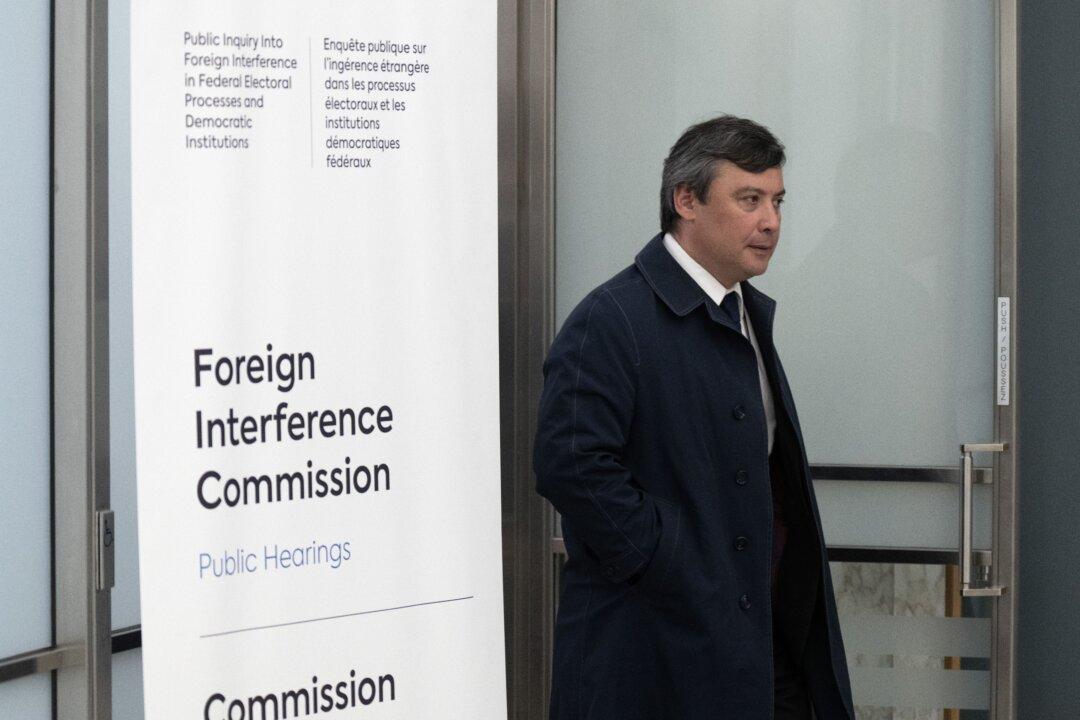A probable Beijing-directed disinformation campaign targeting Tory MP Michael Chong was inadvertently detected by Global Affairs Canada as the department was temporarily turning its sights inward to protect byelections against foreign meddling.
Global Affairs Canada (GAC) official Robin Wettlaufer told the Foreign Interference Commission on Oct. 4 that it’s “possible” the disinformation campaign wouldn’t have been detected outside an electoral period.





